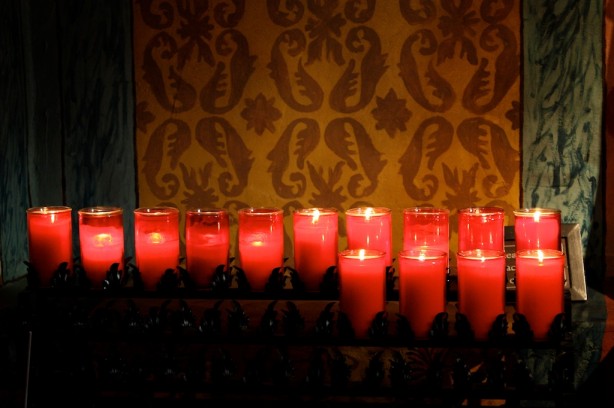The rabbinic tradition had embedded in it an experience that came to be known as Midrash. Simply put, it was the opportunity for the contemporary culture to fill in the blanks that older cultures left unanswered. The Law was still present and good, it was the expression of the Father?s heart for his creation, but how to live it out in our place, in our time? This made up the Midrash discussions.
A great Midrash-like discussion for our day is, ?How then shall we live out the one another texts of the New Testament? Things like love, serve, be hospitable to, greet, forgive?one another. They all make up the Father?s heart for community; but how, in this place, in this time?
The beauty in the flow of periodically asking a question like this is that it allows a community to evaluate itself as it is embedded in a particular culture with its ever-changing needs. There can be no one prescriptive answer, for its redemptive power is in the freedom to explore and choose a way of obedience to the mandates.
Whatever the boundary markers (Ps 16:6) the Lord has erected in your particular place and time to live out the one another commands, I think there are some entry points worth considering. The language of availability and vulnerability were spoken to me by my friends in the Northumbria Community. They have proved to be interesting entry points to a variety of community experiences I have enjoyed. In our day of increasing isolation and the mastering of Christian bubbles, these words have helped push my formation along.
With each of these entry points there are a variety of spiritual exercises that God?s grace can use to shape and transform us and our community for its redemptive purposes. I refer to spiritual exercises all can choose, as opposed to spiritual gifts that are valuable for those graced with such ministries.
Availability to one another is very time intensive and it will feel sacrificial. It is worth some time to consider how to grow in this area. To see availability become an entry point in community we might consider what the disciplines of hospitality, prayer, or service would look like.
Being vulnerable with one another literally means to be willing to expose our wounds. This is risky business, but no honest community occurs without such exposure. An interesting exploration of the spiritual exercises of submission, confession, and guidance can bring deep transformation and growth in vulnerability to an individual and a community.
Finding a good book on spiritual disciplines would be helpful in creating a list of other spiritual exercises which could produce availability and vulnerability. The discernment as to which exercises God might be inviting you to take up, though, must come through personal reflection and examining of your current rhythm of life.
As the ancient monastic tradition has taught us, the personal cell (the cell of the heart) is the place where we can turn towards Him and seek His face and hear His voice. From there taking up the Midrash question, ?How then shall we live?? becomes a powerful redemptive force for these days.

